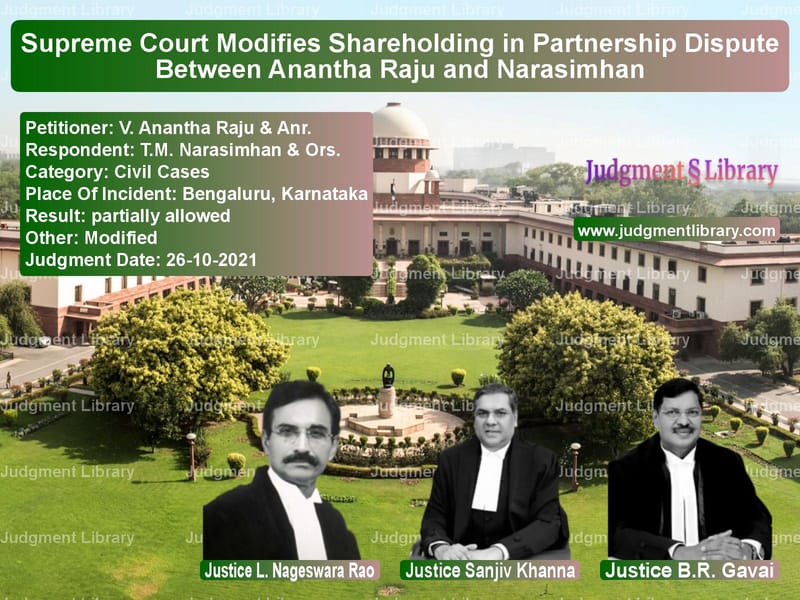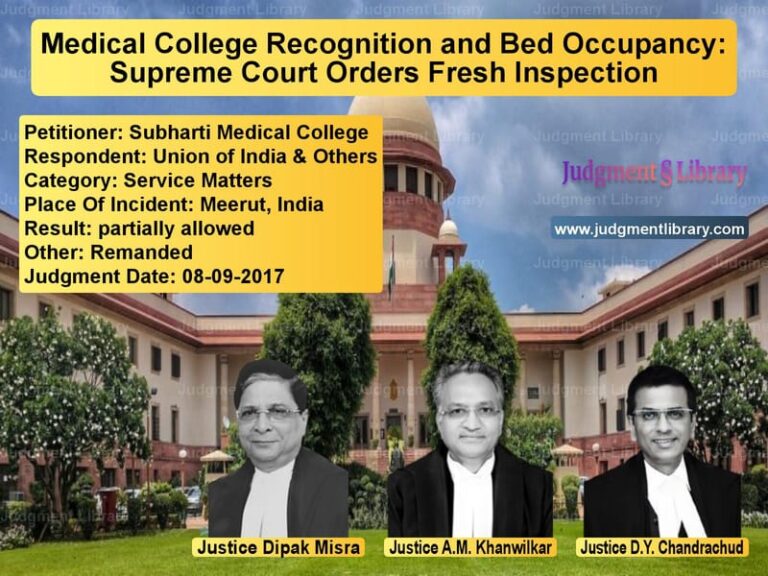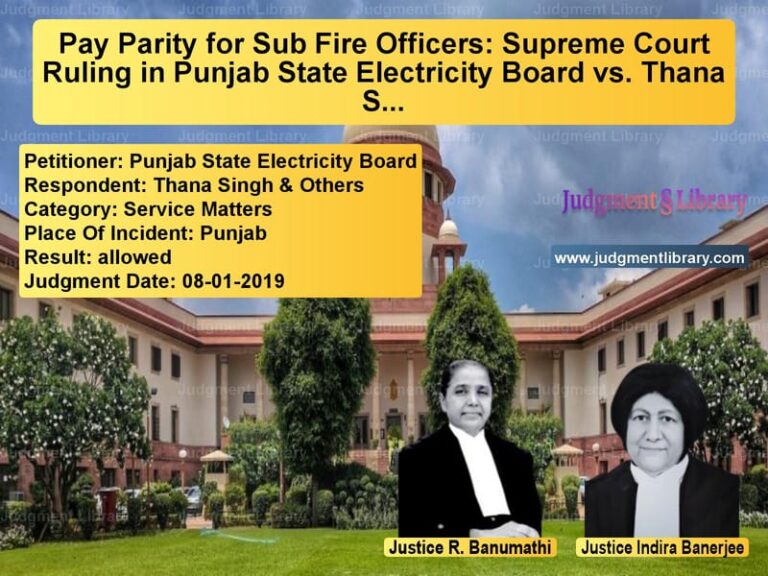Supreme Court Modifies Shareholding in Partnership Dispute Between Anantha Raju and Narasimhan
The Supreme Court of India recently ruled on a long-standing partnership dispute between V. Anantha Raju and T.M. Narasimhan regarding the distribution of profits and the expulsion of partners. The ruling clarifies the interpretation of partnership agreements, their amendments, and the role of documentary evidence in such cases.
Background of the Case
The dispute originates from a partnership firm, M/s Selwel Combines, established in 1986 and reconstituted through several deeds. Initially, the firm was formed with five partners, but over time, new partners were inducted, and the profit-sharing ratio was altered.
The primary contention was whether the plaintiffs, V. Anantha Raju and his son, had a 50% share in the profits and losses of the firm or whether their share was limited to 10%, as claimed by the defendants. The issue was further complicated by alleged mistakes in the partnership deed that led to conflicting interpretations.
Arguments by the Petitioner (Anantha Raju)
Senior Counsel R. Basant, representing the petitioners, argued:
- The trial court and High Court erred in holding that the plaintiffs were entitled to only a 10% share.
- The 1992 partnership deed stipulated that the petitioner would receive a 50% share if he contributed Rs. 50,00,000, but this condition was not reiterated in the 1995 reconstituted deed.
- Even if there was a requirement to invest Rs. 50,00,000, the firm had earned significant revenues from leasing properties, negating the need for individual capital contributions.
- The amended 1995 partnership deed, which explicitly mentioned a 25% share each for the two plaintiffs, should have been upheld.
Arguments by the Respondents (T.M. Narasimhan and Others)
The respondents, represented by Counsel Balaji Srinivasan, countered:
- The 1992 deed was clear in stating that a failure to invest Rs. 50,00,000 would result in a reduction of shareholding to 10%.
- There was no documentary proof of the petitioner having invested this amount.
- The 1995 deed mistakenly recorded a 25% share for the plaintiffs instead of the correct 10%, which should be rectified.
- The plaintiffs were expelled from the partnership due to conduct detrimental to the firm, making their claim to a higher share irrelevant beyond the expulsion date.
Supreme Court’s Judgment
The Supreme Court ruled partly in favor of the petitioners. The Court made the following key observations:
- The 1995 partnership deed superseded the 1992 deed in terms of profit-sharing, meaning that the plaintiffs were indeed entitled to a 50% share before their expulsion.
- The respondents’ claim that the 1995 deed contained a mistake was not substantiated by documentary evidence.
- The written contract, as per Section 91 and 92 of the Indian Evidence Act, takes precedence over oral statements that attempt to alter its terms.
- The plaintiffs’ expulsion from the firm on June 18, 2004, was valid and remained undisturbed.
Conclusion
The Supreme Court’s ruling underscores the importance of documentary evidence in partnership disputes. While the Court recognized the plaintiffs’ rightful share before their expulsion, it upheld their removal from the firm. This judgment serves as a precedent in cases involving amendments to partnership agreements and the resolution of conflicts arising from them.
Petitioner Name: V. Anantha Raju & Anr..Respondent Name: T.M. Narasimhan & Ors..Judgment By: Justice L. Nageswara Rao, Justice Sanjiv Khanna, Justice B.R. Gavai.Place Of Incident: Bengaluru, Karnataka.Judgment Date: 26-10-2021.
Don’t miss out on the full details! Download the complete judgment in PDF format below and gain valuable insights instantly!
Download Judgment: v.-anantha-raju-&-an-vs-t.m.-narasimhan-&-or-supreme-court-of-india-judgment-dated-26-10-2021.pdf
Directly Download Judgment: Directly download this Judgment
See all petitions in Contract Disputes
See all petitions in Property Disputes
See all petitions in Judgment by L. Nageswara Rao
See all petitions in Judgment by Sanjiv Khanna
See all petitions in Judgment by B R Gavai
See all petitions in partially allowed
See all petitions in Modified
See all petitions in supreme court of India judgments October 2021
See all petitions in 2021 judgments
See all posts in Civil Cases Category
See all allowed petitions in Civil Cases Category
See all Dismissed petitions in Civil Cases Category
See all partially allowed petitions in Civil Cases Category







